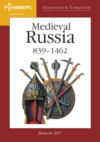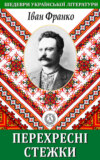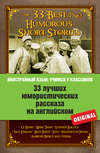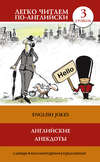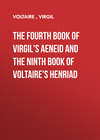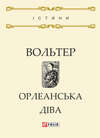Kitabı oku: «The History of Peter the Great, Emperor of Russia», sayfa 5
CHAP. VI
The reign of Peter the First. – Beginning of the grand reformation.
Peter the Great was tall, genteel, well made, with a noble aspect, piercing eyes and a robust constitution, fitted for all kinds of hardship and bodily exercise. He had a sound understanding, which is the basis of all real abilities; and to this was joined an active disposition, which prompted him to undertake and execute the greatest things. His education was far from being worthy of his genius. The princess Sophia was, in a peculiar manner, interested to let him remain in ignorance, and to indulge himself in those excesses which youth, idleness, custom, and the high rank he held, made but too allowable. Nevertheless, he had been lately married, (June 1689) like others of his predecessors, to one of his own subjects, the daughter of colonel Lapuchin; but, as he was young, and for some time enjoyed none of the prerogatives of the crown, but that of indulging his pleasures without restraint, the ties of wedlock were not always sufficient to keep him within just bounds. The pleasures of the table, in which he indulged himself rather too freely, with foreigners, who had been invited to Moscow by prince Galitzin, seemed not to presage that he would one day become the reformer of his country; however, in spite of bad examples, and even the allurements of pleasure, he applied himself to the arts of war and government, and which, even then, shewed that he had the seeds of greatness in him.
It was still less expected, that a prince, who was subject to such a constitutional dread of water, as to subject him to cold sweats, and even convulsions, when he was obliged to cross a small river or brook, should become one of the best seamen in all the north. In order to get the better of nature, he began by jumping into the water, notwithstanding the horror he felt at it, till at length this aversion was changed into a fondness for that element.29
He often blushed at the ignorance in which he had been brought up. He learned, almost of himself, without the help of a master, enough of German and high Dutch, to be able to write and explain himself tolerably well in both those languages. The Germans and Dutch appeared to him as the most civilized nations, because the former had already erected, in Moscow, some of those arts and manufactures which he was desirous of seeing established in his empire, and the latter excelled in the art of navigation, which he already began to look upon as the most necessary of all others.
Such were the dispositions which Peter cherished, notwithstanding the follies of his youth. At the same time, he found himself disturbed by factions at home, had the turbulent spirit of the strelitzes to keep under, and an almost uninterrupted war to manage against the Crim Tartars. For though hostilities had been suspended in 1689, by a truce, it had no long continuance.
During this interval, Peter became confirmed in his design of introducing the arts into his country.
His father Alexis had, in his lifetime, entertained the same views, but he wanted leisure, and a favourable opportunity to carry them into execution; he transmitted his genius to his son, who was more clear-sighted, more vigorous, and more unshaken by difficulties and obstacles.
Alexis had been at a great expense in sending for Bothler,30 a ship builder and sea captain, from Holland, together with a number of shipwrights and sailors. These built a large frigate and a yacht upon the Wolga, which they navigated down that river to Astracan, where they were to be employed in building more vessels, for carrying on an advantageous trade with Persia, by the Caspian Sea. Just at this time the revolt of Stenko-Rasin broke out, and this rebel destroyed these two vessels, which he ought to have preserved for his own sake, and murdered the captain; the rest of the crew fled into Persia, from whence they got to some settlements belonging to the Dutch East India company. A master-builder, who was a good shipwright, staid behind in Russia, where he lived a long time in obscurity.
One day, Peter taking a walk at Ishmaelof, a summer-palace built by his grandfather, he perceived, among several other rarities, an old English shallop, which had lain entirely neglected: upon which he asked Timmerman, a German, and his mathematical teacher, how came that little boat to be of so different a construction from any he had seen on the Moska? Timmerman replied, that it was made to go with sails and oars. The young prince wanted instantly to make a trial of it; but it was first to be repaired and rigged. Brant, the ship-builder abovementioned, was by accident found out at Moscow, where he lived retired; he soon put the boat in order, and worked her upon the river Yauza, which washes the suburbs of the town.
Peter caused his boat to be removed to a great lake, in the neighbourhood of the convent of the Trinity; he likewise made Brant build two more frigates, and three yachts, and piloted them himself. A considerable time afterwards, viz. in 1694, he made a journey to Archangel, and having ordered a small vessel to be built in that port, by the same Brant, he embarked therein on the Frozen Sea, which no sovereign beside himself had ever beheld. On this occasion, he was escorted by a Dutch man of war, under the command of captain Jolson, and attended by all the merchant-vessels then in the port of Archangel. He had already learned the manner of working a ship; and, notwithstanding the pains his courtiers took to imitate their master, he was the only one who made a proficiency in it.
He found it no less difficult to raise a well disciplined body of land forces, on whom he could depend, than to establish a navy. His first essay in navigation, on a lake, previous to his journey to Archangel, was looked upon only as the amusements of a young prince of genius; and his first attempt to form a body of disciplined troops, likewise appeared as nothing more than that of diversion. This happened during the regency of the princess Sophia; and, had he been suspected of meaning any thing serious by this amusement, it might have been attended with fatal consequences to him.
He placed his confidence in a foreigner, the celebrated Le Fort, of a noble and ancient family in Piedmont, transplanted near two centuries ago to Geneva, where they have filled the most considerable posts in the state. He was intended to have been brought up to the trade, to which the town is indebted for the figure it now makes; having formerly been known only as the seat of religious controversies.
But his genius, which prompted him to the greatest undertakings, engaged him to quit his father's house at the age of fourteen; and he served four months31 in quality of a cadet in the citadel of Marseilles; from thence he went to Holland, where he served some time as a volunteer, and was wounded at the siege of Grave, a strong fortified town on the Meuse, which the prince of Orange, afterwards king of England, retook from Lewis XIV. in 1674. After this, led by hopes of preferment, wherever he could find it, he embarked with a German colonel, named Verstin, who had obtained a commission from Peter's father, the czar Alexis, to raise soldiers in the Netherlands, and bring them to Archangel. But, when he arrived at that port, after a most fatiguing and dangerous navigation, the czar Alexis was no more; the government was changed, and Russia in confusion. The governor of Archangel suffered Verstin, Le Fort, and his whole troop, to remain a long time, in the utmost poverty and distress, and even threatened to send them into the extremity of Siberia; upon which every man shifted for himself. Le Fort, in want of every thing, repaired to Moscow, where he waited upon the Danish resident, named De Horn, who made him his secretary: there he learned the Russian language, and some time afterwards found means to be introduced to the czar Peter; the elder brother, Iwan, not being a person for his purpose. Peter was taken with him, and immediately gave him a company of foot. Le Fort had seen very little service, he knew but little of letters, not having studied any particular art or science; but he had seen a great deal, and had a talent of making the most of what he saw. Like the czar, he owed every thing to his own genius; he understood the German and Dutch languages, which Peter was learning, as those of two nations that might be of service in his designs. Every thing conspired to make him agreeable to Peter, to whom he strictly attached himself. From being the companion of his pleasures, he became his favourite, and confirmed himself in that station by his abilities. The czar made him his confidant in the most dangerous design that a prince of that country could possibly form, namely, that of putting himself in a condition to be able one day to break the seditious and barbarous body of forces called the strelitzes. It had cost the great sultan or basha Osman his life, for attempting to disband the janissaries. Peter, young as he was, went to work in a much abler manner than Osman.
He began with forming, at his country-seat at Preobrazinski, a company of fifty of his youngest domestics; and some young gentlemen, the sons of boyards, were chosen for their officers: but, in order to teach these young noblemen a subordination, to which they were wholly unaccustomed, he made them pass through all the different military degrees, and himself set them the example, by serving first as a drum, then as a private soldier, a serjeant, and a lieutenant of the company. Nothing was ever more extraordinary, nor more useful, than this conduct. The Russians had hitherto made war in the same manner as our ancestors at the time of the feudal tenures, when the unexperienced nobles took the field at the head of their vassals, undisciplined, and ill armed: a barbarous method, sufficient indeed to act against the like armies, but of no use against regular troops.
This company, which was formed wholly by Peter himself, soon increased in numbers, and became afterwards the regiment of Preobrazinski guards. Another regiment, formed on the same plan, became in time the regiment of Semeniousky guards.
The czar had already a regiment of five thousand men that could be depended upon, trained by general Gordon, a Scotchman, and composed almost entirely of foreigners. Le Fort, who had borne arms but a short time, but whose capacity was equal to every thing, undertook to raise a regiment of twelve thousand men, which he effected: five colonels were appointed to serve under him, and he saw himself on a sudden general of this little army, which had been raised, as much to oppose the strelitzes, as the enemies of the state.
One thing worthy of being remarked,32 and which fully confutes the hasty error of those who pretend that France lost very few of its inhabitants by the revocation of the edict of Nantz, is, that one-third of his army, which was only called a regiment, consisted of French refugees. Le Fort disciplined his new troops, as if he had been all his lifetime a soldier.
Peter was desirous of seeing one of those images of war, the mock fights, which had lately been introduced in times of peace: a fort was erected, which was to be attacked by one part of his new troops, and defended by the other. The difference between this fight, and others of the like nature, was, that instead of a sham engagement, there was a real one, in which some of his men were slain, and a great many wounded.33 Le Fort, who commanded the attack, received a considerable wound. These bloody sports were intended to initiate the young troops into the service of the field; but it required much labour, and even some degree of sufferings to compass this end.
These warlike amusements did not take off the czar's attention to his naval project. As he had made Le Fort a general by land, notwithstanding his having never borne a command; he now made him admiral, though he had never had the direction of a ship, but he knew him deserving both of the one and the other. It is true, that he was an admiral without a fleet, and a general with only his regiment for an army.
By degrees the czar reformed that great abuse in the army, viz. the independence of the boyards, who, in time of war, used to bring into the field a multitude of their vassals and peasants: this was exactly the ancient government of the Franks, Huns, Goths, and Vandals, who indeed subdued the Roman empire in its state of decline, but would have been totally destroyed, had they had the warlike disciplined legions of ancient Rome to encounter, or such armies as are now brought into the field.
Admiral Le Fort was not long, however, before he had something more than an empty title. He employed some Dutchmen and Venetians in building a number of barcolongos, or kind of long barks, and also two ships of about thirty guns each, at the mouth of the Woronitz, which falls into the Tanais, or Don: these vessels were to fall down the river, and keep in awe the Crim Tartars, with whom hostilities had been renewed.
The czar was now to determine (in 1689) against which of the following powers he would declare war, whether against the Turks, the Swedes, or the Chinese. But here it will be proper to premise on what terms he then stood with China, and which was the first treaty of peace concluded by that nation.
CHAP. VII
Congress and Treaty with the Chinese.34
We must set out by forming a proper idea of the limits of the Chinese and Russian empires at this period. When we leave Siberia, properly so called, and also far behind us to the south, a hundred hordes of Tartars, with white and black Calmucks, and Mahometan and Pagan Monguls, we come to the 130th degree of longitude, and the 52d of latitude upon the river Amur.35 To the northward is a great chain of mountains, that stretches as far as the Frozen Sea, beyond the polar circle. This river, which runs upwards of five hundred leagues,36 through Siberia and Chinese Tartary, falls, after many windings, into the sea of Kamtshatka. It is affirmed for a truth, that at its mouth, which opens with this sea, there is sometimes caught a monstrous fish, much larger than the hippopotamus of the Nile, and that the tooth thereof is the finest ivory. It is furthermore said, that this ivory was formerly an object of trade; that they used to convey it through Siberia, which is the reason why several pieces of it are still found under the ground in that country. This is the most probable account of the fossil ivory, of which we have elsewhere spoken; for it appears highly chimerical to pretend, that there were formerly elephants in Siberia.
This Amur is likewise called the Black River by the Mantechoux Tartars, and the Dragon's River by the Chinese.
It was in these countries, so long unknown, that the Russians and Chinese contested the limits of their empires.37 The Russians had some forts on the river Amur, about three hundred leagues from the great wall. Many hostilities had arisen between these two nations on account of these forts: at length both began to understand their interests better; the emperor Camhi preferred peace and commerce to an unprofitable war, and sent several ambassadors to Niptchou, one of those settlements. The ambassadors had ten thousand men in their retinue, including their escort: this was Asiatic pomp; but what is very remarkable, is, that there was not an example in the annals of the empire, of an embassy being sent to another potentate; and what is still more singular, that the Chinese had never concluded a treaty of peace since the foundation of their monarchy. Though twice conquered by the Tartars, who attacked and subjected them, they never made war upon any people, excepting a few hordes that were quickly subdued, or as quickly left to themselves, without any treaty. So that this nation, so renowned for morality, knew nothing of what we call the 'Law of nations;' that is to say, of those vague rules of war and peace, of the privileges of foreign ministers, of the formalities of treaties, nor of the obligations resulting from thence, nor of the disputes concerning precedency and point of honour.
But in what language were the Chinese to negotiate with the Russians, in the midst of deserts? This difficulty was removed by two jesuits, the one a Portuguese, named Pereira, the other a Frenchman, whose name was Gerbillon; they set out from Pekin with the Chinese ambassadors, and were themselves the real negotiators. They conferred in Latin with a German belonging to the Russian embassy, who understood this language. The chief of that embassy was Golowin, governor of Siberia, who displayed a greater magnificence than the Chinese themselves, and thereby gave a high idea of the Russian empire, to a people who thought themselves the only powerful nation under the sun.
The two jesuits settled the limits of both empires at the river Kerbechi, near the spot where the treaty was concluded. All the country, to the southward of this line of partition, was adjudged to the Chinese, and the north to the Russians, who only lost a small fort which was found to have been built beyond the limits: a peace was agreed to, and after some few altercations, both parties swore to observe it, in the name of the same God;38 and in these terms, 'If any of us shall entertain the least thought of kindling anew the flames of war, we beseech the supreme Lord of all things, and who knows all hearts, to punish the traitor with sudden death.'
From this form of treaty, used alike by Chinese and Christians, we may infer two important truths: the first, that the Chinese government is neither atheistical nor idolatrous, as has been so frequently and falsely charged upon it, by contradictory imputations. Secondly, that all nations, who cultivate the gift of reason and understanding, do, in effect, acknowledge the same God, notwithstanding the particular deviations of that reason, through the want of being properly instructed.
The treaty was drawn up in Latin, and two copies were made of it. The Russian ambassadors set their names the first to the copy that remained in their possession, and the Chinese also signed theirs the first, agreeable to the custom observed by European nations, when two equal powers conclude a treaty with each other. On this occasion was observed another custom belonging to the Asiatic nations, and which was indeed, that of the earliest ages. The treaty was engraven on two large marble pillars, erected on the spot, to determine the boundaries of the two empires.
Three years after this, the czar sent Isbrand Ides, a Dane, his ambassador to China; and the commerce he then established between the two nations, continued with advantage to each, till the rupture between them in the year 1722; but since this short interruption, it has been revived with redoubled vigour.
CHAP. VIII
Expedition to the Palus Mæotis; conquest of Azoph. – The czar sends young gentlemen into foreign countries for improvement.
It was not so easy to have peace with the Turks, and indeed, the time seemed come for the Russians to rise upon their ruins. The republic of Venice, that had long groaned under their yoke, began now to rouse itself. The Doge Morosini, the same who had surrendered Candy to the Turks, afterwards took from them the Peloponnesus, which conquest got him the title of Peloponnesian, an honour which revived the memory of the Roman republic. Leopold, emperor of Germany, had proved successful against the Ottoman power in Hungary; and the Poles made shift to check the incursions of the Crim Tartars.
Peter took advantage of these circumstances, to discipline his troops, and to procure himself the empire of the Black Sea. General Gordon marched along the Tanais, towards Azoph, with his numerous regiment of five thousand men, followed by general Le Fort, with his regiment of twelve thousand; by a body of Strelitzes, under the command of Sheremeto and Schein, natives of Prussia; by a body of Cossacks, and by a large train of artillery: in a word, every thing was ready for this expedition.
1694.] This grand army began its march under the command of marshal Sheremeto, or Scheremetoff, in the beginning of the summer of 1695, to attack the town of Azoph, at the mouth of the Tanais, and at the extremity of the Palus Mæotis, now called the Zaback Sea. The czar himself was with the army, but only in quality of a volunteer, being determined to learn, some time before he took upon him to command. During their march, they stormed two forts which the Turks had built on the banks of the river.
This expedition was attended with some considerable difficulties. The place was well fortified, and defended by a numerous garrison. A number of barcolongos, resembling the Turkish saicks, and built by Venetians, with two small Dutch ships of war, that were to sail out of the Woronitz, could not be got ready soon enough to enter the sea of Azoph. All beginnings meet with obstacles. The Russians had never yet made a regular siege; and the first attempt did not meet with all the success that could be desired.
One Jacob, a native of Dantzic, had the direction of the artillery, under the command of general Schein; for as yet they had none but foreign officers belonging to the train, and none but foreign engineers and pilots. This Jacob had been condemned to the bastinade, or knout, by Schein, the Russian general. At that time rigorous discipline was thought to be the only method of strengthening command; and the Russians quietly submitted to it, notwithstanding their natural bent to sedition; and after the punishment, did their duty as usual. But the Dane thought in a different manner, and resolved to be revenged for the treatment he had received, and thereupon nailed up the cannon, deserted to the Turks, turned Mahometan, and defended Azoph, with great success, against his former masters. This instance shews, that the lenity which is now practised in Russia, is much preferable to the former severities; and is better calculated to retain those in their duty, who by a good education, have a proper sense of honour. It was absolutely necessary at that time, to use the utmost rigour towards the common people; but since their manners have been changed, the empress Elizabeth39 has completed, by clemency, the work her father begun, by the authority of the laws. This lenity has even been carried, by this princess, to a degree unexampled, in the history of any nation. She has promised, that, during her reign, no person shall be punished with death, and she has kept her word. She is the first sovereign who ever shewed so much regard for the lives of men. By an institution, equally prudent and humane, malefactors are now condemned to serve in the mines, and other public works: by which means their very punishments prove of service to the state. In other countries, they know only how to put a criminal to death, with all the apparatus of execution, without being able to prevent the perpetration of crimes. The apprehension of death makes, perhaps, less impression on those miscreants, who are, for the most part, bred up in idleness, than the fear of punishment and hard labour, renewed every day.
To return to the siege of Azoph, which place was now defended by the same person who had before directed the attacks against it; the Russians, in vain, attempted to take it by storm; and after losing a great number of men, were obliged to raise the siege.
Perseverance in his undertakings, was the distinguishing character of Peter the Great. In the spring of 1696, he brought a still more considerable army before Azoph. About this time died czar John, his brother, who though he had not, while living, been the least curb to Peter's authority, having enjoyed only the bare title of czar, yet he had been some restraint upon him in regard to appearances. The money which had been appropriated to the support of John's dignity and household, were now applied to the maintenance of the army. This proved no small help to a government, whose revenues were not near so great as they are at present. Peter wrote to the emperor Leopold, to the states-general, and to the elector of Brandenburg, to obtain engineers, gunners, and seamen. He likewise took some Calmucks into his pay, whose light horse are very useful against the Crim Tartars.
The most agreeable of the czar's successes, was that of his little fleet, which was at length completed, and well commanded. It defeated the Turkish saicks, sent from Constantinople, and took some of them. The siege was carried on regularly by trenches, but not altogether in our method; the trenches being three times deeper than ours, with parapets as high as ramparts. At length the garrison surrendered, the 28th of July, 1696. N. S. without being allowed the honours of war, or to carry out with them either arms or ammunition: they were likewise obliged to deliver up the renegade, Jacob, to the conquerors.
The czar immediately set about fortifying Azoph, built strong forts to protect it, and made a harbour capable of holding large vessels, with a design to make himself master of the Streights of Caffa, or the Cimmerian Bosphorus, which commands the entrance into the Pontus Euxinus, or Black Sea; places famous in ancient times, by the naval armaments of Mithridates. He left thirty-two armed saicks before Azoph,40 and made all the necessary preparations for fitting out a fleet against the Turks, to consist of nine ships of sixty guns, and of forty-one, from thirty to fifty. He obliged his principal nobles, and the richer merchants, to contribute towards this armament; and thinking that the estates of the clergy ought to help towards the common cause, he obliged the patriarch, the bishops, and principal clergy, to pay down a sum of ready money to forward this expedition, in honour of their country, and the advantage of the Christian faith. The Cossacks were employed in building a number of those light boats in use amongst them, and which were excellent for the purpose of cruising on the coast of Crim Tartary. The Ottoman empire was alarmed at this powerful armament; the first that had ever been attempted on the Palus Mæotis. The czar's scheme was to drive the Turks and the Tartars for ever out of the Taurica Chersonesus, and afterwards to establish a free and easy commerce with Persia through Georgia. This is the very trade which the Greeks formerly carried on to Colchos, and to this peninsula of Crim Tartary, which Peter now seemed on the point of conquering.
Having subdued the Turks and the Tartars, he was willing to accustom his people to splendid shows as well as to military labour. He made his army to enter into Moscow, under triumphal arches, in the midst of superb fire-works, and every thing that could add to the lustre of the festival. The soldiers who had fought on board the Venetian saicks against the Turks, and who were a distinct corps of themselves, marched first. Marshal Sheremeto, the generals Gordon and Schein, admiral Le Fort, and the other general officers, all took the precedence of their monarch in this procession, who declared he had no rank in the army, being desirous to convince the nobility, by his example, that the only way to acquire military preferment, was to deserve it.41
This triumphal entry seemed somewhat a-kin to those of the ancient Romans, in which the conquerors were wont to expose the prisoners they had taken, to public view, and sometimes put them to death: in like manner, the slaves, taken in this expedition, follow the army; and the deserter Jacob, who had betrayed them, was drawn in an open cart, in which was a gibbet, to which his body was fastened after he had been broke upon the wheel.
On this occasion was struck the first medal in Russia, with this remarkable legend, in the language of the country. 'Peter the First, august emperor of Muscovy.' On the reverse was the city of Azoph, with these words; 'Victorious by Fire and Water.'
Peter felt a sensible concern in the midst of all these successes, that his ships and gallies in the sea of Azoph, had been built entirely by the hands of foreigners; and wished as earnestly to have a harbour in the Baltic Sea, as upon the Pontus Euxinus.
Accordingly, in the month of March 1697, he sent threescore young Russians of Le Fort's regiment, into Italy, most of them to Venice, and the rest to Leghorn, to instruct themselves in the naval art, and the manner of constructing gallies. He likewise sent forty others into Holland,42 to learn the method of building and working large ships: and others likewise into Germany, to serve in the land forces, and instruct themselves in the military discipline of that nation. At length he took a resolution to absent himself for a few years from his own dominions, in order to learn how to govern them the better. He had an irresistible inclination to improve himself by his own observation and practice in the knowledge of naval affairs, and of the several arts which he was so desirous to establish in his own country. He proposed to travel incognito through Denmark, Brandenburg, Holland, Vienna, Venice, and Rome. France and Spain were the only countries he did not take into his plan; Spain, because the arts he was in quest of, were too much neglected there; and France, because in that kingdom they reigned with too much ostentation, and that the parade and state of Lewis XIV. which had disgusted so many crowned heads, ill agreed with the private manner in which he proposed to travel. Moreover, he was in alliance with most of the powers, whose dominions he intended to visit, except those of France and Rome. He likewise remembered, with some degree of resentment, the little respect shewn by Lewis XIV. to his embassy in 1687, which had proved more famous than successful; and lastly he already began to espouse the cause of Augustus, elector of Saxony, with whom the prince of Conti had lately entered into a competition for the crown of Poland.

